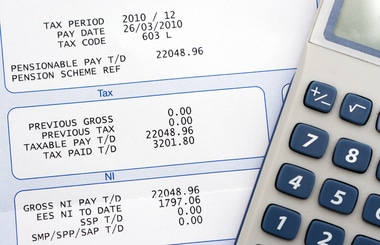“You can deduct that — it’s a business expense” is often casually tossed around, as if it gives business managers carte blanche to put anything they want on their tax forms. But the reality is more nuanced.
To start with, says the IRS, not every expense you have is suitable for deduction; an expense must be both ordinary and necessary. “An ordinary expense is one that is common and accepted in your trade or business. A necessary expense is one that is helpful and appropriate for your trade or business.” And necessary means just that — it doesn’t have to be essential.
In small, family-owned businesses especially, the line between business and personal expenses can get blurred — but the IRS wants to see every penny in its proper category.
Typically, you cannot deduct personal, living or family expenses. However, if you purchase something that gets both personal and business use, you can make a partial deduction. For example, says the IRS, if you borrow money and use 70 percent of it for business and the other 30 percent for a family vacation, you can deduct 70 percent of the interest as a business expense. (More details are available in Publication 535, Business Expenses.)
A Few Important Deductions
The IRS provides a list of some of the largest and most common deductible expenses:
- Employees’ pay – Your employees’ wages and salaries.
- Retirement plans – Expenses associated with savings plans that offer you tax advantages to set aside money for your own and your employees’ retirement.
- Rent expense – Any amount you pay for the use of property you do not own. If you have or will receive equity in or title to the property, however, the rent is not deductible.
- Interest – The amount charged for the use of money you borrowed for business activities.
- Taxes – Various federal, state, local and foreign taxes directly attributable to your trade or business as business expenses.
- Insurance – The ordinary and necessary cost of insurance as a business expense if it is for your trade, business or profession.
How BlueStone Services Can Help
This is just a brief introduction. More information is available on the IRS website. Also, we’d be happy to discuss how the many IRS and state rules affect your business, and options you may have to lower your taxes. Contact us today to get started!






